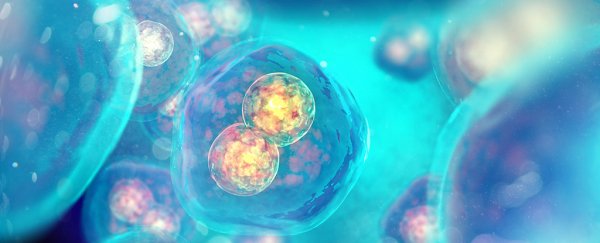While the debate about the ethics of genetically modifying human embryos rages on, scientists in China have successfully carried out the procedure for the second time in history. On this occasion, the team used the CRISPR/Cas9 gene-editing tool to try and create HIV-resistant embryos.
This latest report highlights both the benefits and dangers of tweaking embryos at the genetic level: they could eventually be used to fight or even prevent disease and disability, but could also pave the way for 'designer babies' with features grown to order. Not to mention opening the door to a whole host of unwanted biological side effects that we haven't even considered yet.
Governments around the world are scrambling to put ethical regulations in place, and this second experiment – like the first, which was carried out by a different team in China – had to be conducted under some strict guidelines. Primarily, the scientists from Guangzhou Medical University had to use non-viable embryos incapable of developing into living humans.
This time, the research team collected 213 fertilised human eggs from 87 patients at a fertility clinic - eggs that were unusable for IVF and had been donated for research purposes. Using CRISPR, they inserted a naturally-occurring mutation to the genomes of the embryos in an attempt to make them resistant to the HIV virus.
"Some humans naturally carry this mutation (known as CCR5Δ32) and they are resistant to HIV, because the mutation alters the CCR5 protein in a way that prevents the virus from entering the T cells it tries to infect," Ewen Callaway explains for Nature.
According to a report published in the journal Nature, 26 human embryos were eventually targeted for modification using the process, with four being successfully modified. Of the others, a significant number showed signs of unintended mutations - proof that we're still way off being able to perform this kind of gene editing reliably and safely. All of the embryos in the experiment were destroyed after three days.
The CRISPR technology might be incredibly promising, enabling scientists to locate bad sections of DNA and replace them if required, but its precision remains suspect.
One of the other concerns raised by opponents of genetic editing is that it could produce side effects further down the line that we can't imagine. Is it worth the risk to potentially eradicate crippling genetic diseases for good? That's the question at the heart of the issue.
"The results are both comforting and disturbing," biological chemist Peter Donovan from the University of California, who wasn't involved in the research, told The Verge. "The good news is that the technique worked for this group in the same way that it did for the first group. This indicates the reproducibility of the science… However, this group of researchers also reproduced another finding described by the first group, namely that this type of gene editing also causes off-target effects."
Human gene editing is currently allowed in the UK under very strict regulations; so far, it's not legal in the US.
